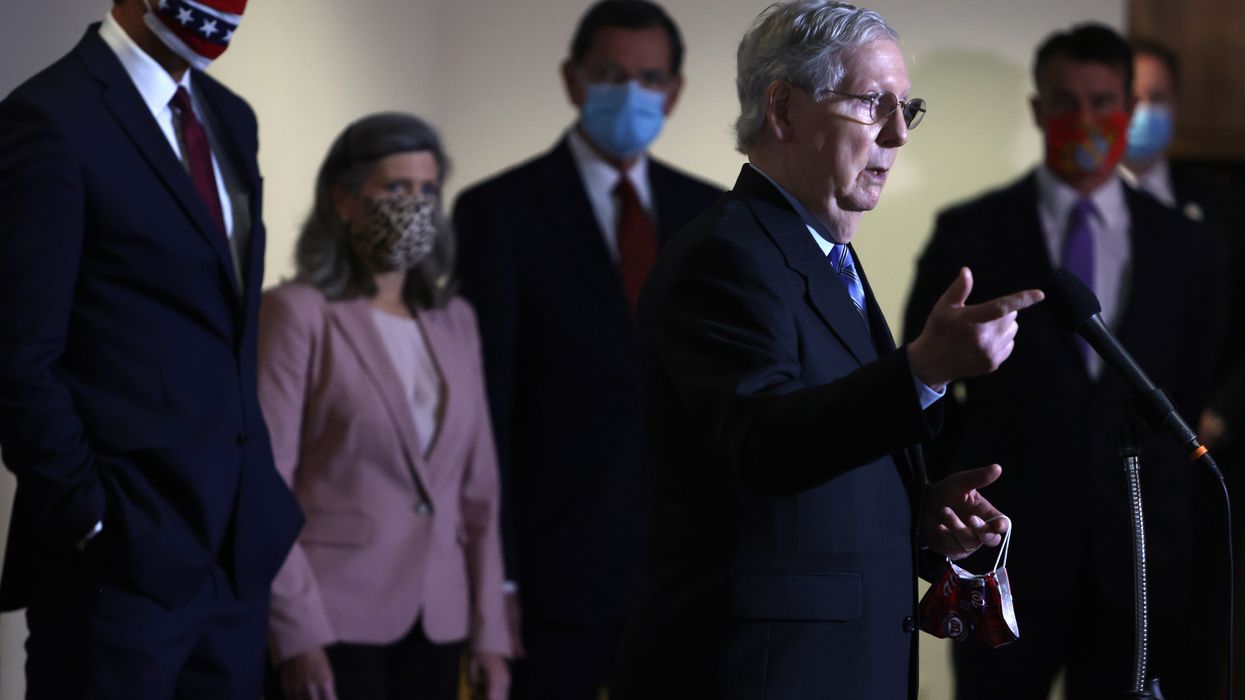Schneider is a creator of both the civic education site VoteSmart and Republicans for Integrity, an organization of former GOP members of Congress "who place people before partisan politics." She represented Rhode Island in the House from 1981 through 1990.
In a cybersecurity and disaster exercise less than two years ago, President Trump's Homeland Security secretary at the time praised Colorado as a "national leader in safeguarding elections," saying "we'd love to continue to use you as an example of what other states can adopt."
Why did Kirstjen Nielsen offer such high praise for Colorado's election system?
As a resident of the state for much of the past 25 years, I am pleased to say it's because Colorado has implemented nothing but successful elections conducted almost entirely by mail for the past seven years. They have boosted turnout, lowered costs and increased the security of the overall voting process.
George Stern, the top elections official in Jefferson County, which takes in the suburbs just west of Denver, summed up the success story well: "Colorado has proven year after year that voting by mail not only increases accessibility (we regularly have one of the highest turnouts in the country) and efficiency (our costs decreased by 40 percent when we switched to universal mail-in voting and made voting more accessible, according to a Pew Charitable Trust funded study) — it also delivers acclaimed security."
Clearly, during a presidential election in the middle of an unprecedented public health crisis, conducting a safe, secure and efficient election is more important than ever, despite frantic tweets from President Trump attempting to discredit this proven process.
That's why half of Congress — the House — passed an economic relief package in May that includes sufficient funding for the states (and the Postal Service) to do their parts to conduct a fair and orderly election this fall.
Yet the Senate, led by Republican Majority Leader Mitch McConnell, refused to even begin negotiating until the end of July — just days before the expiration of the $600 weekly federal unemployment benefit that has helped keep millions afloat during this economic meltdown, which resulted from poor federal preparedness for the pandemic.
This Senate has stalled long enough. It is essential senators pass a bill now in time to secure the November election.
Already, at least 77 percent of Americans can cast ballots by mail, without having to get an excused absence from going to the polls. Passing legislation in the Senate will help ensure that the Postal Service will be able to deliver our ballots to us on time, and get them back to election offices on time, while providing health and safety protections for those who vote in person.
A group of nearly 200 former members of Congress has weighed in on this critical issue, sending a letter to incumbent senators urging them to fund safe, secure elections.
Spearheaded by Issue One's bipartisan ReFormers Caucus, this effort represents the largest bipartisan group of former members of Congress, governors and Cabinet officials ever assembled to advocate for political reform.
"At a time when our nation is facing a dual economic and public health crisis, Congress must act to ensure state and local election officials have what they need to carry out a safe and credible election process that Americans have confidence in, said the letter, signed by 116 Democrats and 83 Republicans (including me). "Failure to deliver adequate resources for the November general elections — whether states and localities decide to invest in absentee ballots, more early voting, personal protective equipment, or recruitment of younger poll workers — will risk more chaos and confusion on Election Day, and will, ultimately, sow doubt in this sacred democratic process."
Though I am a Republican, my concern here is as an American citizen — one who's worried about the survival of America's unbroken practice of peaceful election outcomes.
If Republican senators want to ensure a peaceful, safe and secure election, their last chance to act is now.



















